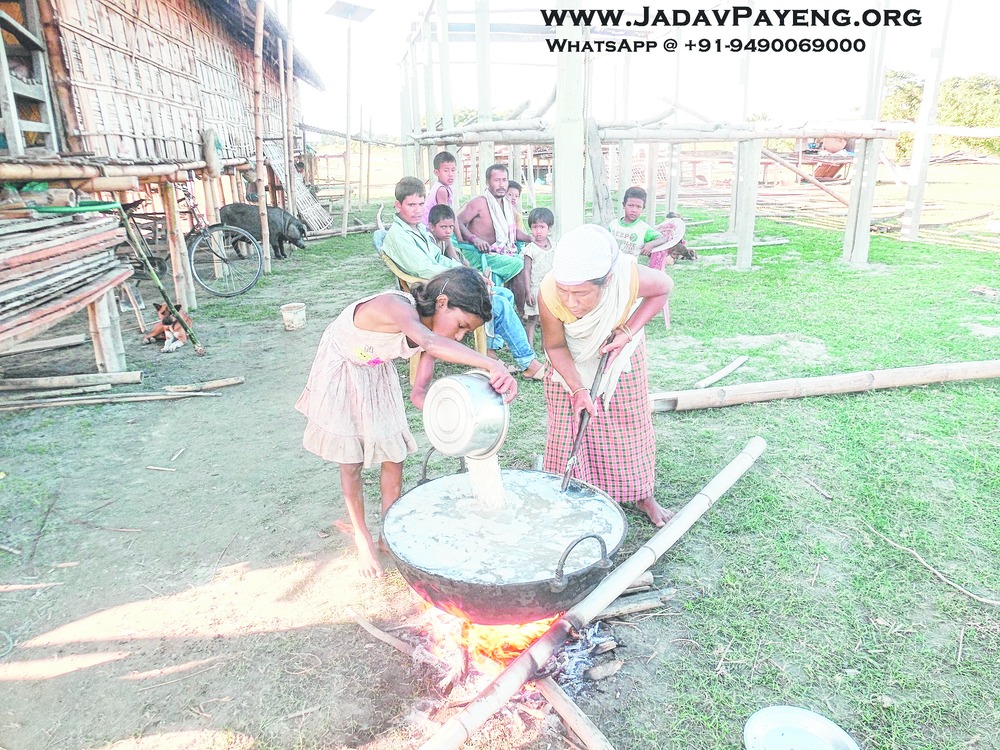
Jorhat, April 18: A balance between tradition, tourism and beer will help the rich culture of Majuli to retain its essence.
Tourism Cloud, an NGO, began the documentation of Mising traditions in Majuli on World Heritage Day today to preserve and prevent corruption of their culture.
Tourism Cloud operates in 20 countries and comprises nearly 80 PhD scholars in tourism to promote responsible and sustainable tourism.
Anil G. of Tourism Cloud in Majuli said the unplanned opening up of the river island to more tourists over the years would ultimately erode the basic culture of this river island.
"Tourism Cloud will document the Mising culture on the island with a thrust on the making and consumption of apong (rice beer) made by the community. The building of bridges and improvement of communication network might result in a preference for foreign liquor over the local brew," he said. The documentation will be both photographic and written.
Lony Singpho of Bordumsa, Arunachal Pradesh, an intern with Tourism Cloud and Arijit, an MBA in tourism from the Indian Institute of Tourism and Travel Management, ministry of tourism, government of India, will be here from May 10 for three months.
Singpho, who is doing her MBA in tourism from Pondicherry University, said she would be here soon for one-and-a-half months to document details of the life of the Mising people.
"I am already working on this and it forms a part of our research," she said.
Anil G. said it was already seen that on weekends, apong was being consumed by youths on the riverbanks with chips and chanachur.
"Drinking apong as an intoxicant is not a part of Mising culture. This will send a wrong signal to people visiting the island. Apong is consumed by the Misings with family members on marriages and other ceremonies. It is also offered to guests at meals," Anil G, who is also a research scholar in tourism, said.
Singpho and Arijit will also document Jadav Payeng's Karthik sapori and the adjoining Aruna sapori to show their pristine nature.
"This is what we want. The purity of the culture should be retained but at the same time, tourism should bring in gains. At present, tourism and the money it brings in is what is becoming more important and not the preservation of the culture," he said.
"Let us say with increased connectivity, a number of resorts - concrete and brick structures - come up along with gaudily-decked shops. This is not Majuli. The structures should be the chang ghar with tin roofs if not thatched ones," he said by way of example.
"Today the artistic ability of the people organising raax festival is being sidelined with laptops and screens providing the background, from the scenes of forests or the sea in which Krishna fights the monster snake. Earlier, the lights and a fan blowing on a blue bedsheet made up the billowing sea, but no longer. In the future, the whole raax might be shown on screen with the help of a laptop. Then I might as well watch it on my laptop," Anil G. said.
The elements of study will include housing patterns, density of population, type and material used in construction, dressing, guest receiving patterns, agricultural practices, rituals, celebrations, food habits, and flora and fauna.










